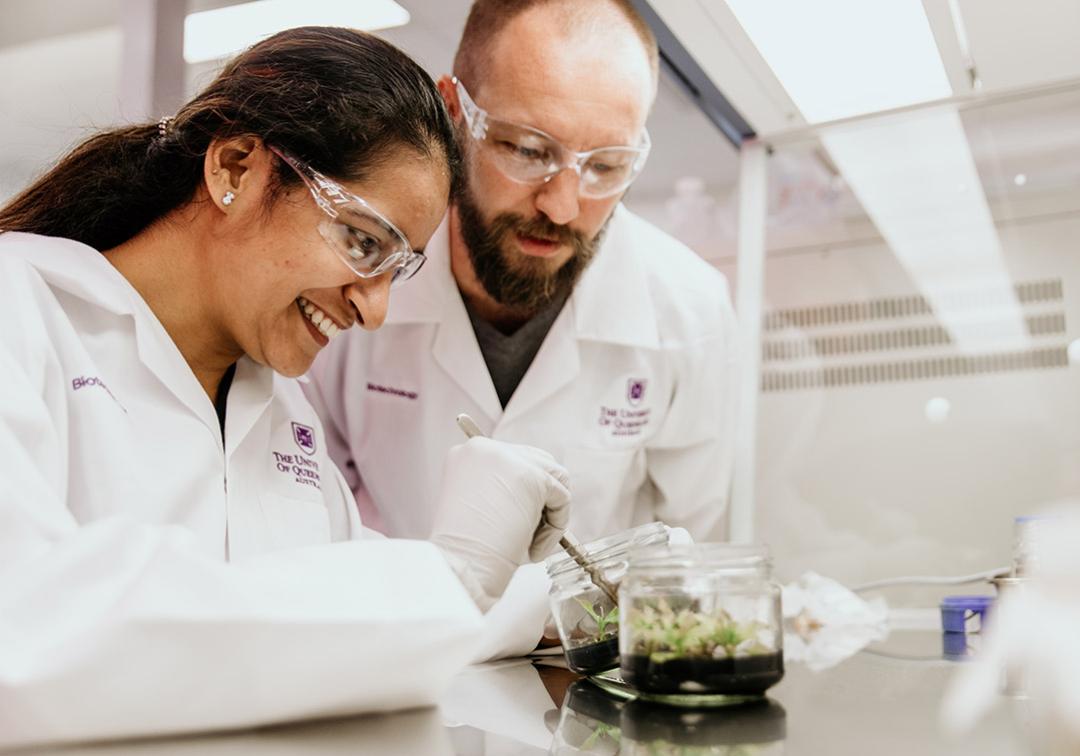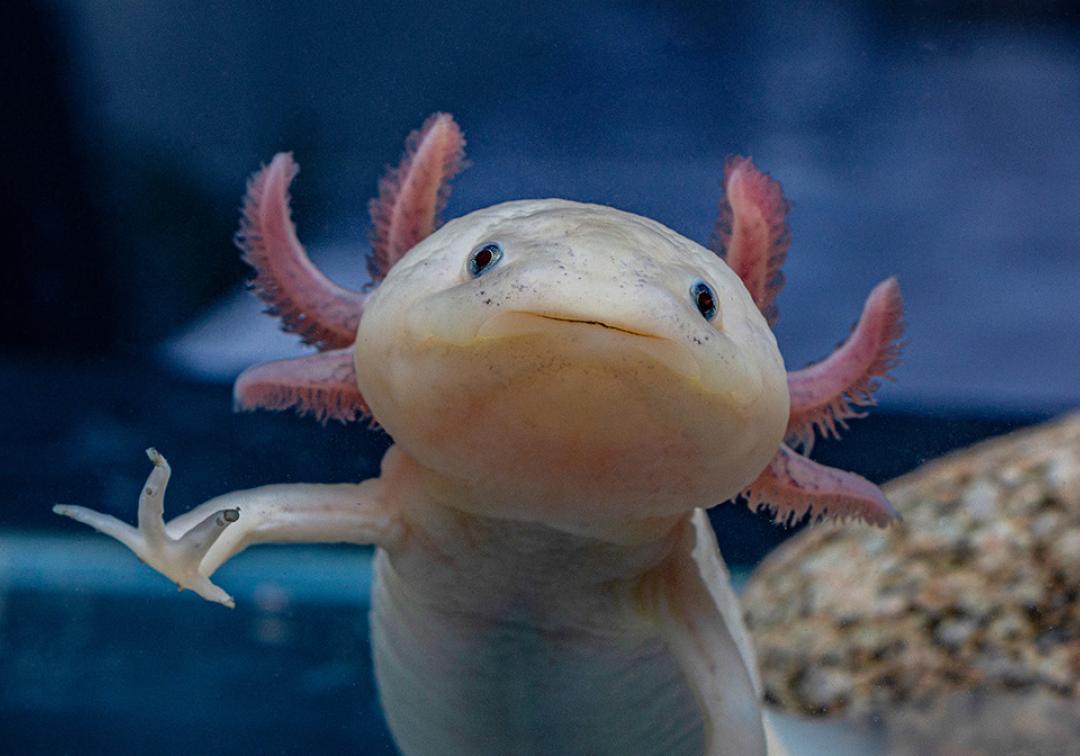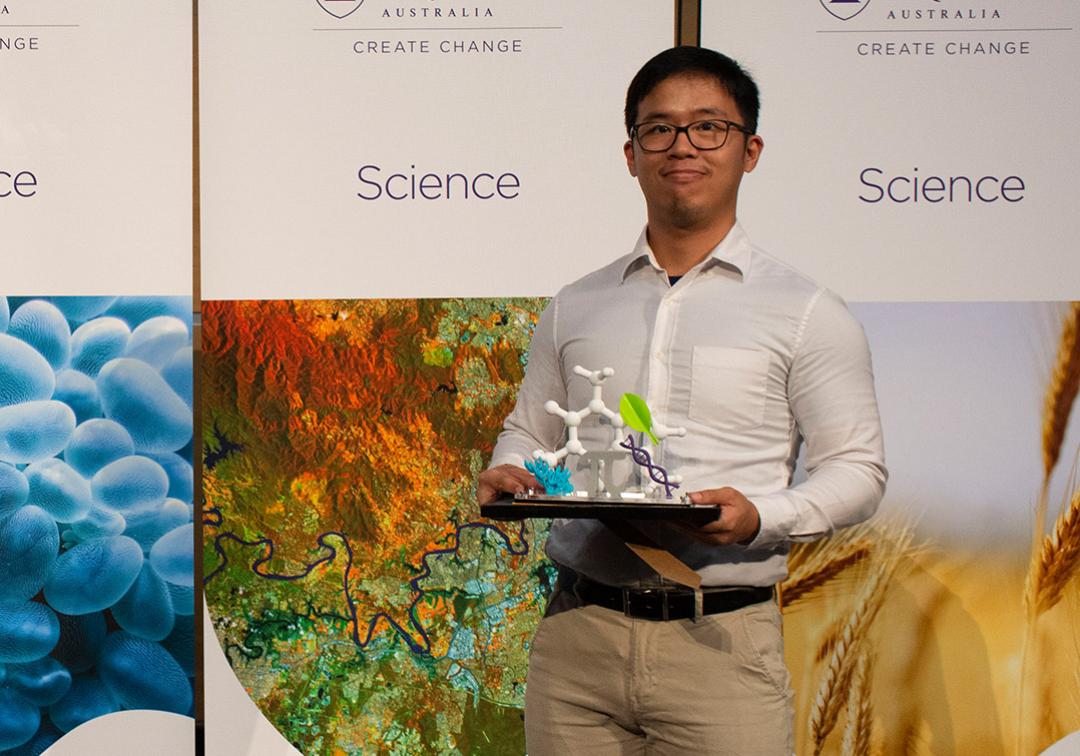
Master of Biotechnology Research Extensive
Overview
Equip yourself with advanced scientific skills and the business, legal and regulatory understanding needed to translate discoveries from the laboratory to real life.
This program is designed for scientists who wish to increase their technical and research skills in core areas of biotechnology, and to obtain a more extended laboratory immersion than is available in the regular Master of Biotechnology.
Learn from entrepreneurial scientists who have successfully commercialised their discoveries in this rapidly emerging industry. You'll receive hands-on training applying cutting-edge techniques in state-of-the-art laboratory and research facilities similar to professional working environments.
Select from more than 30 courses, allowing you to tailor your studies to suit your interests and career goals. Specialise in one of 5 fields of biotechnology study: animal agriculture, medical, molecular imaging, plant agriculture, or synthetic biology and industrial.
Apply your expertise to a research project of your choice, working alongside leading UQ researchers or with one of UQ’s industry partners.
Put your learning into practice through internships, placements and international study options that focus on research and development, commercialisation, marketing and the business of science.
This program also provides strong preparation for entry into a PhD program.
Program highlights
- Learn from entrepreneurial scientists who have successfully commercialised their scientific discoveries.
- Choose from a large suite of electives in science that underpin new biotechnologies.
- Take advantage of UQ’s strong links to industry, government and the research community to build your professional network, skills and experience.
- Apply your expertise to a research project of your choice, working alongside leading UQ researchers or with one of UQ’s industry partners.
- This program is recognised by the US National Professional Science Master's Association as an affiliated Professional Science Master's program.
Fields of study
Tailor your studies to suit your goals. This program offers these options:
- Animal Agricultural Biotechnology
- Medical Biotechnology
- Molecular Imaging Technology
- Plant Agricultural Biotechnology
How you'll learn
Your learning experiences are designed to best suit the learning outcomes of the courses you choose.
- Lectures
- Tutorials
- Work placements
- Research experience
- Laboratory work
- Workshops
What you'll study
At UQ, degrees are called 'programs' and subjects are called 'courses'. Here's a sample of the courses you could study in this program:
- Quality Management Systems in Biotechnology
- Biologics
- Issues in Biotechnology
- Business Planning in Biotechnology
Career possibilities
Postgraduate study can take you anywhere. Depending on which field you choose, here are some of the careers you could be on your way to:
- Nanotechnology and biosensor application specialist
- Diagnostic test producer
- Business plan analyst
- Pharmaceutical developer
- University researcher
- Venture capital consultant
- Plant breeding, engineering, cropping or horticulture specialist
- Plant and animal geneticist
Average annual salary range
Research Fellow
seek.com.au
Average annual salary range
Business Analyst
seek.com.au
Next steps after graduation
Graduates from this program can pursue a diverse range of scientific, technical or leadership opportunities in Australia or overseas, including in:
- research institutes and government
- biotechnology startups or commercial companies
- biopharmaceutical companies
- vaccine manufacturing
- diagnostics laboratories
- venture capital and IP management firms
- regulatory or advisory bodies
- top universities worldwide.
Our graduates have stepped into roles such as quality assurance manager, quality control microbiologist, biochemical engineer, biomanufacturing professional, researcher, policy advisor, investment analyst, production manager, entrepreneur, startup founder, and more.
Events
See all events
29 June
Queensland Biology Winter School, Year 12

1 July
International Baccalaureate Research Skills Program
Stories
See all stories
Careers
Study biotechnology at UQ to cultivate a cutting-edge career
5-minute read

UQ people
Science skills + business savvy = biotech success
4-minute read
Stories
See all stories
Careers
Study biotechnology at UQ to cultivate a cutting-edge career
5-minute read
Entry requirements
Entry requirements
It's possible to complete this degree in 2 years or 1.5 years depending on your qualifications and experience.
You can apply for any duration as long as you meet the entry requirements. You may also be eligible to apply for credit or exemptions to shorten your degree further. You'll graduate with the same qualification no matter how long you take to complete the degree.
2-year degree (32 units of study)
To be eligible to complete the degree in 2 years full-time (or part-time equivalent)full-time (only available as full-time study), you'll need:
- a bachelor's degree (or equivalent) in biotechnology, science, bioinformatics, pharmacy or engineering.
You must have a grade point average (GPA) of 5.0 on a 7-point scale in your previous qualification.
1.5-year degree (24 units of study)
If you have relevant prior learning or experience, you can reduce the number of courses you need to complete and graduate in less time.
To be eligible to complete the degree in 1.5 years full-time (or part-time equivalent)full-time (only available as full-time study), you'll need:
- a bachelor honours degree (or equivalent) in biotechnology, science, bioinformatics, pharmacy or engineering, including a minimum of one semester of full-time research (or equivalent).
You must have a grade point average (GPA) of 5.0 on a 7-point scale in your previous qualification.
Relevant disciplines for previous qualifications
Relevant disciplines include biotechnology, science, bioinformatics, pharmacy and engineering.
Related programs
Depending on your previous qualifications and current goals, you might want to consider
one of these related programs:
English language requirements
IELTS overall 6.5; reading 6; writing 6; speaking 6; listening 6. For other English Language Proficiency Tests and Scores approved for UQ
TOEFL iBT (including Paper Edition) - Overall 87, listening 19, reading 19, writing 21 and speaking 19.
PTE Academic - Overall Score of 64 and 60 in all sub bands.
BE - A minimum overall grade of 4 plus a minimum grade of C in all macro skills.
CES - Overall 176 and 169 in all sub bands.
OET is not accepted.
There are other ways to meet the English language requirements. For some programs, additional conditions apply.
Student visas
International students who are accepted into full-time study in the Master of Biotechnology Research Extensive are eligible to apply for an Australian student visa (subclass 500).
There are a number of requirements you must satisfy before a visa is granted, including the Genuine Student (GS) requirement.
Fields of study
Fields of study
Tailor your studies to suit your goals. This program offers these options:
Fields of study
Tailor your studies to suit your goals. This program offers these options:
Fees and Scholarships
Indicative annual fee
Approximate yearly cost of tuition (16 units). Your fees will vary according to your selected courses and study load. Fees are reviewed each year and may increase.
$9,540
2026
Approximate yearly cost of full-time tuition (16 units). Your fees will vary according to your study load. Fees are reviewed each year and may increase.
AUD $58,056
2026
Government assistance
Financial aid
As an international student, you might be eligible for financial aid – either from your home country, or from the Australian Government.
HECS-HELP
Domestic places in the Master of Biotechnology Research Extensive are Commonwealth supported, as long as you meet all Commonwealth supported place eligibility requirements.
This means the cost of your education is shared between you and the Australian Government. Instead of tuition fees, Commonwealth supported students pay what are called student contribution amounts.
If you have a Commonwealth supported place, you may also be eligible for HECS-HELP. This is an Australian Government loan scheme to assist eligible students with the cost of their student contribution amounts.
Centrelink support
The Australian Government offers a number of income-support payments to eligible Australian university students.
Scholarships
You may be eligible for more than 100 scholarships, including:
How to apply
Applying online
All international applications should be submitted to UQ. If you prefer, you can use an approved UQ agent near you.
The program code for the Master of Biotechnology Research Extensive is 5627.
This program is available in multiple durations. You can apply for any duration as long as you meet the entry requirements.
When you apply, select your preferred duration. If you don't meet the requirements for your first preference, we'll automatically consider you for entry into a longer duration.
Applying online
All domestic applications should be submitted to UQ.
The program code for the Master of Biotechnology Research Extensive is 5627.
This program is available in multiple durations. You can apply for any duration as long as you meet the entry requirements.
When you apply, select your preferred duration. You can also ask us to consider you for a longer duration if you don't meet the entry requirements for your first preference.
Important dates
The closing date for this program is:
- To commence study in semester 2 - May 31 of the year of commencement.
- To commence study in semester 1 - November 30 of the previous year.
Visa processing times vary. Apply and accept your offer as early as you can.
To learn more about UQ dates, including semester start dates, view the Academic Calendar.
Important dates
The closing date for this program is:
- To commence study in Semester 1 - January 31 of the year of commencement.
- To commence study in Semester 2 - June 30 of the year of commencement.
To learn more about UQ dates, including semester start dates, view the Academic Calendar.
Aboriginal and Torres Strait Islander applicants
For support with applying – or if you have any questions about university life – get in touch with our Aboriginal and Torres Strait Islander Studies (ATSIS) Unit.
Explore other programs
Express yourself. And your interest.
They say choosing a degree is hard, which is why we've made it easy. Register your interest and we'll send you everything you need to know about applying to UQ.






